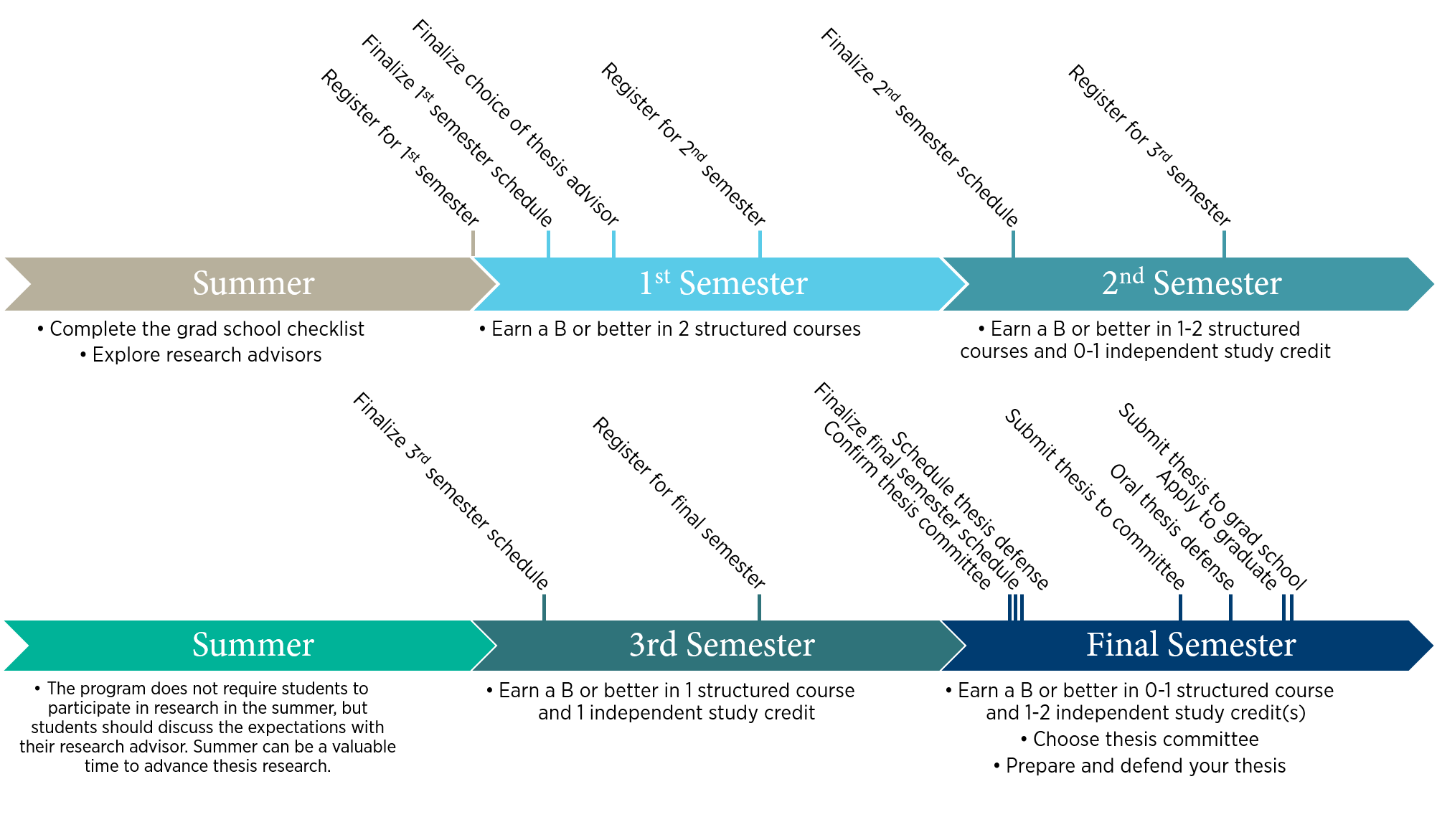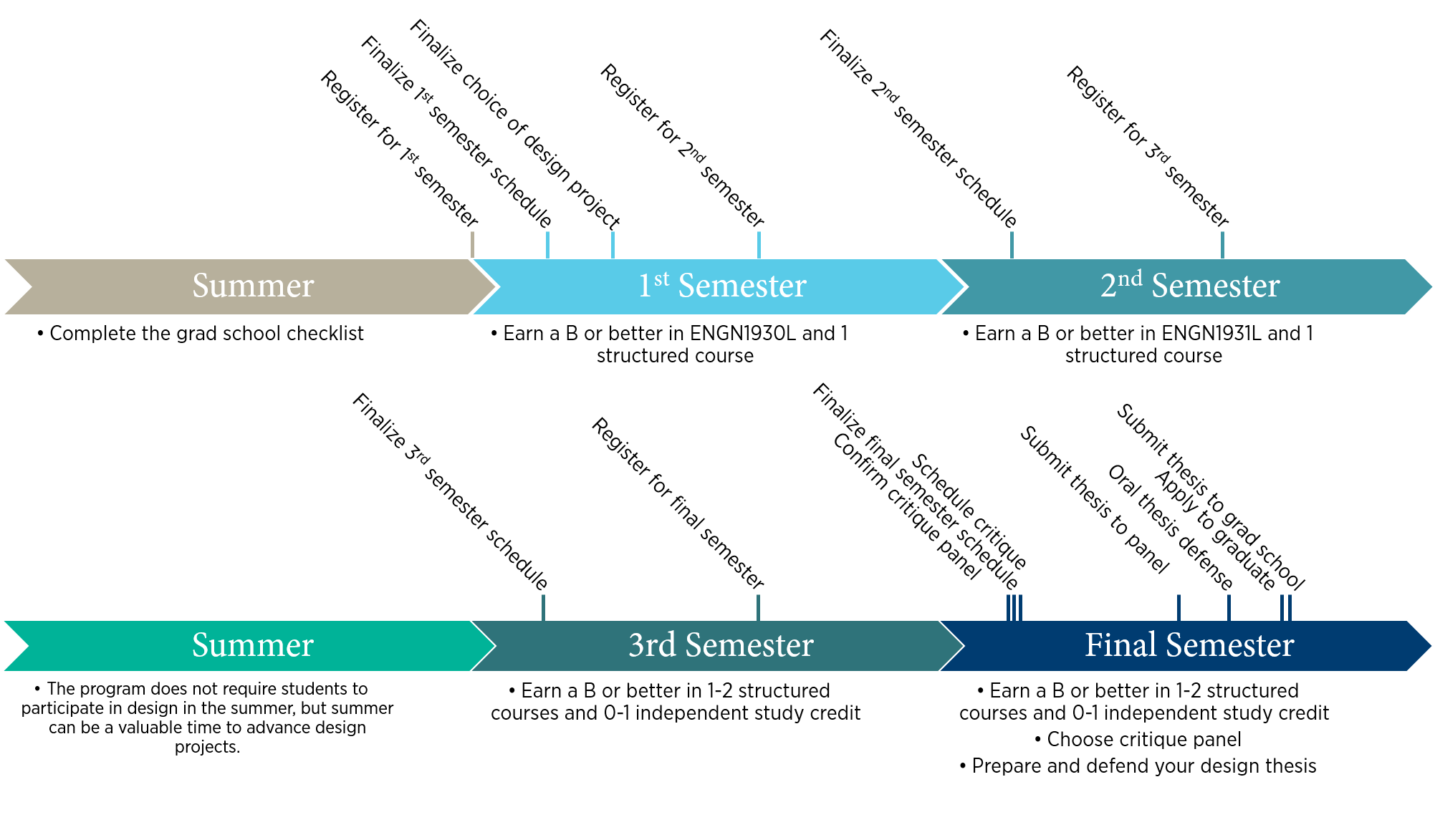Important notes for all tracks:
- Credit for graduate level courses taken at Brown or elsewhere is not accepted or transferable.
- Do not register to audit a course. If you do, you will be charged for the course. An audited course does not count towards your degree.
- Do not register for BIOL 2230 or BIOL 2240: Biomedical Engineering and Biotechnology Seminar Course. If you register for BIOL 2230 or 2240, you will be charged for the course, and it will not count towards your degree.
- A master's student taking 2 or more courses per semester is considered a full-time student. Any student taking 1 course per semester is considered a part-time student for that semester. Part-time status can have implications for student loan repayments and visa status of international students.
Important 2024-2025 Dates and Links for Incoming 2-year Masters Students
| DEADLINES and LINKS | DATES |
|---|---|
| Registration for 1st semester | 9/1/2024 |
| Finalize 1st semester schedule (shopping period ends) | 9/17/2024 |
| Finalize choice of thesis advisor | 10/1/2024 |
| Registration for 2nd semester | 11/4/2024-11/15/2024 |
| Classes of the 2nd semester begin | 1/22/2025 |
| Finalize 2nd semester schedule (shopping period ends) | 2/4/2025 |
| Registration for 3rd semester | 4/16/2025-4/23/2025 |
Important 2024-2025 Dates for Concluding 2-year Masters Students
|
DEADLINES and LINKS |
DATES |
|---|---|
| Finalize semester schedule (shopping period ends) | 9/1/2024 |
| Registration for final semester | 11/4/2024-11/15/2024 |
| Classes of the 2nd semester begin | 1/22/2025 |
| Confirm thesis committee or critique panel with Masters Program Director | 2/7/2025 |
| Finalize semester schedule (shopping period ends) | 2/4/2025 |
| Schedule defense | 2/28/2025 |
| Submit written thesis to committee or panel | Two weeks before YOUR defense |
| Apply to graduate | 5/1/2025 |
| Submit thesis to grad school | 5/1/2025 |
Before coming to Brown
- Admitted Students Guide
-
Finding a research advisor:
- Any of our core faculty or affiliated faculty can be a research advisor. The core faculty page can be sorted by research interests.
- Descriptions of projects recruiting Masters students are available from the Masters Program Director.
- Students can also search on Researchers @ Brown for other research interests.
- Students are encouraged to reach out to faculty ASAP to inquire about availability in their lab and setting up an interview.
Beyond our Academic Programming
- gBMES
- Center for Biomedical Engineering LinkedIn Group
- Other Professional Development Resources:


